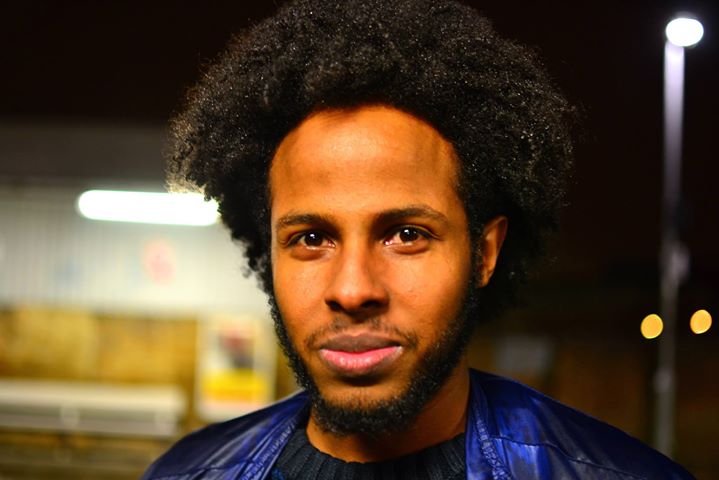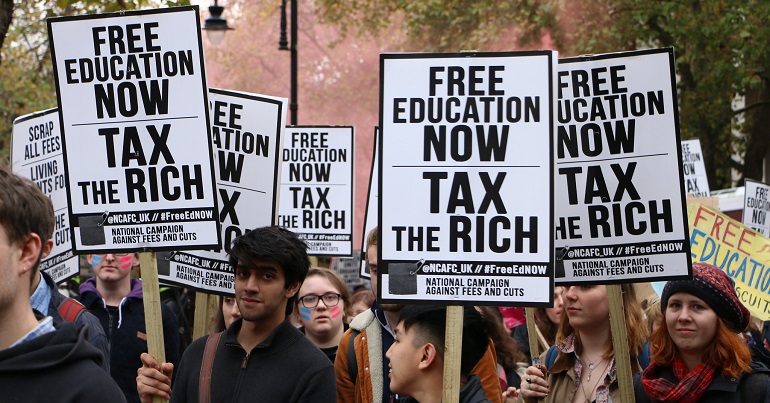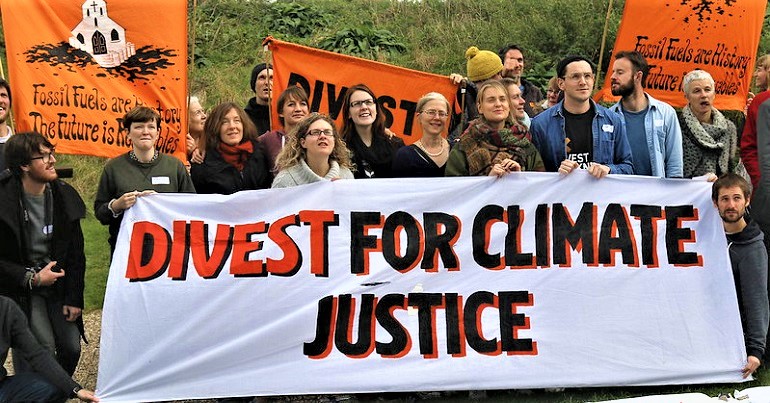‘We need to get students to leverage the political potential in the local population’: interview with Abdi-aziz Suleiman
William Pinkney-Baird interviews Abdi-aziz Suleiman, standing for Vice President Union Development at NUS Conference next week, in the sixth and final of a series of interviews with some of the left-wing candidates for NUS leadership.
‘Within the NUS there is a radical possibility—there is the incredible capacity to organise around the tens of thousands of students up and down the country—who actually engage themselves with their student unions—and the wider collective of students at colleges and universities.’ I was talking to Abdi Suleiman, standing for Vice President Union Development at NUS Conference this week aboiut why he was standing.
He continued: ‘I think that at this moment in time one of the real issues of NUS isn’t so much that it’s failing in its principles—actually, passing free education at last conference proves it can succeed in putting out principles. The problem is often of capacity, of organising, of having embedded training and themes of campaigning within the wider NUS. A lot of my campaign is about training lots of people, it’s about getting lots of people to leverage the political potential in the local population.’
Abdi has been involved in student campaigning since the student protests of 2010, a time he thinks the student movement should learn from. He recalled his frustration about not just losing the vote in Parliament, but the way in which the student movement disappeared after that, and how much of that was due to lack of a coherent structure. But the movement at the time, he said, gave ‘an insight into the potential, not just to change the conditions of the students, but to provoke changes to people beyond university and college campuses.’
His first priority if elected would be to train at least a thousand students and every sabbatical officer (unless they don’t want to) with social media skills, public speaking skills, policy creation skills. This would allow both officers and ordinary students to become ‘experts in both education policy and campaigning so they’re in the best possible position to be a pool and a resource from which we can begin to build as a student movement, capable of winning and impossible to ignore.’
One of his main focuses would be on further education, which he reminded me contained the majority of students belonging to NUS and most of the mature students, the less well off students and the students from minority backgrounds. He said that 2010 proved that further education contains huge amounts of energy and potential radicalism, but that a lack of full-time officers limited what could be done by FE students’ unions. Therefore, he would campaign for full-time paid sabbatical officers at every FE college, achieved through a mixture of grassroots agitation on campus with the lobbying of college management.
According to Abdi, one of the problems with 2010 is that it was mainly students alone on the street. He said that next time we need to be sure that parents and grandparents are there, trade unions, academics, all those who believe in a public purpose for education. If elected, he would work to create a ‘coalition for education’—encompassing anyone who wanted to be in it, with NUS playing a leading role.
He also stressed the importance of students unions being independent, and in particular, being protected from university management. Abdi argued that ‘it’s very difficult for students’ unions to make demands of their universities when they have to rely on the for their income.’ Therefore, he’d work to look into a different form of funding that is unconditional and thus means ‘students’ unions aren’t vulnerable to blackmail from universities.’
Abdi said that ‘we have extraordinarily vibrant liberation campaigns’ but argued that we needed to increase funding to liberation campaigns. He also argued for the need to talk about international students, and ‘get back into the business of international students making demands.’ One such demand he would argue for would be the return and expansion of the post-study visa for international students.
Finally, Abdi stressed the importance of ensuring that this training and campaigns went across the Natons, not just England.
To conclude, Abdi expressed his view that we’re currently at a path in which we face two possible futures, ‘an irreversible marketisation, a point at which staff have to think of themselves in terms of customer satisfaction and students have to think in terms of pure personal utility and universities have to forget that they have a public purpose, and tuition fees inevitably fly through the roof’ and the option of ‘pulling back’, exemplified by NUS supporting free education for the first time in ten years at last years’ conference.
‘We’re at a point somewhere between an explosion of student activism that means we spread beyond the university and college campus and turn it into an issue for society. We begin to fight not only for the remnants of the welfare state, but begin to imagine a new form of welfare state.’





Leave a Reply